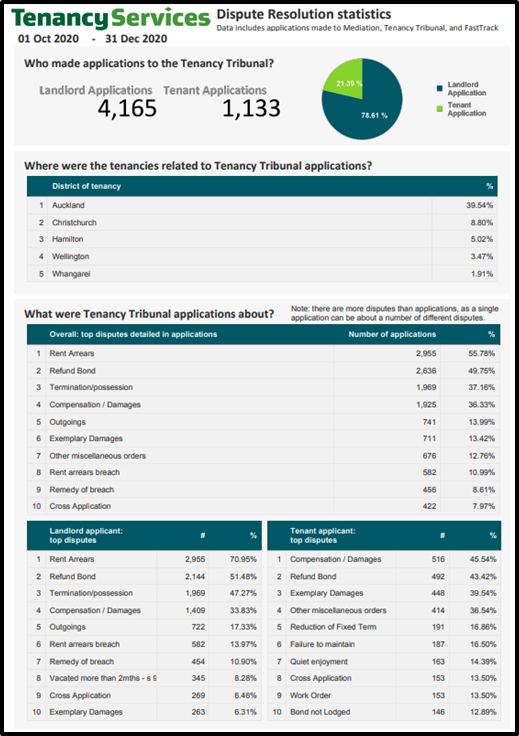5.3 Health and Safety in Property Management
Overview
The inception of the Health and Safety at Work Act (HSWA) in 2015 put a greater emphasis on workplace health and safety following the tragic events of the Pike River Mining disaster. Being a landlord was no exception.
A landlord is operating a business and is therefore captured under the HSWA. Under the definition of the workplace in section 20 of HSWA, the property becomes a workplace when work is being carried out there.
The definition of a workplace is as follows.[1]
Section 20 Meaning of workplace
- In this Act, unless the context otherwise requires, a workplace—
- means a place where work is being carried out, or is customarily carried out, for a business or undertaking; and
- includes any place where a worker goes, or is likely to be, while at work.
Therefore, working in residential property meant that Property Management companies and landlords have duties to workers and other people to ensure that the property that they manage is safe.
Every time a tradesperson, a Property Manager or a landlord enters a property, the property becomes a workplace.
What we will cover
In this lesson, we will look at the following.
- What is a PCBU?
- The risks of non-compliant tradespeople carrying out work
- Potential fines under the HSWA
- Keeping yourself safe whether you are working in Property Management or working as a landlord
[1] The Health and Safety at Work Act 2015; S20: Meaning of workplace
5.2 Common Issues and Disputes
Overview
With over 20,000 Tenancy Tribunal applications in 2020[1] disputes are unfortunately an inevitable part of working within this industry. Particularly if you are a Property Manager, disputes are part of the territory and dealing with conflict is one of the major contributing factors to burnout and a high churn rate within the industry. If you are a landlord who has to deal with conflict, the emotional burden along with the financial stress can put you off being a landlord forever.
In this lesson, we will look at some of the most common disputes, examining what may cause them and what action you can take to resolve them without heading to the Tenancy Tribunal.

We also look at the psychology of disputes, teaching you what happens when you are challenging or criticised. Having a better understanding of this will help you keep your emotions in check and remain in control.
As you will have realized from our last lesson, Tribunals can be complex and time consuming. It is best to try and resolve disputes amicably and as quickly as possible.
[1] Tenancy Services data and statistics; https://www.tenancy.govt.nz/about-tenancy-services/data-and-statistics/
5.1 Mediation and Tenancy Tribunal
Overview
The vast majority of tenancies in New Zealand run smoothly and without any issues. However, inevitably, there will be disputes between a landlord and a tenant from time to time. Unfortunately, when communication breaks down those disputes may struggle to be resolved.
When parties cannot come to an agreement with regards to a tenancy matter, the Residential Tenancies Act provides a framework for compliance and the dispute resolution. This can result in applications to the Tenancy Tribunal.
Part 3 of the RTA covers the constitution and administration of the Tenancy Tribunal. This is a major part of the RTA, covering sections between 67 and 120.
In this lesson, we will be looking at how disputes are resolved through the Tenancy Tribunal system. Before we start, we want to emphasise the importance of having a positive and proactive relationship with your tenants. Too often, emotions and ego get in the way of resolving a dispute. It is best to try and resolve issues between landlords and tenants through dialogue rather than head to the Tribunal. However, sometimes, applying to the Tenancy Tribunal is the best and only option.
The Tenancy Tribunal works alongside Tenancy Services, the Government-run department that is set up to provide information to tenants and landlords as well as run dispute resolution processes such as mediation. Tenancy Services is a part of the huge Government department Ministry of Business, Information and Employment or otherwise known as MBIE for short.
Lesson 5.2 Common Issues and Disputes
With over 30,000 Tenancy Tribunal applications every year, disputes are unfortunately an inevitable part of working within this industry. Particularly if you are a Property Manager, disputes are part of the territory and dealing with conflict is one of the major contributing factors to burnout and a high churn rate within the industry. If you are a landlord who has to deal with conflict, the emotional burden along with the financial stress can put you off being a landlord forever.
In this lesson, we will look at some of the most common disputes, examining what may cause them and what action you can take to resolve them without heading to the Tenancy Tribunal.
We also look at the psychology of disputes, teaching you what happens when you are challenged or criticised. Having a better understanding of this will help you keep your emotions in check and remain in control.
Begin this lesson by clicking the first topic and marking each as complete as you work your way through.
Lesson 5.3 Health and Safety in Property Management
The inception of the Health and Safety at Work Act (HSWA) in 2015 put a greater emphasis on workplace health and safety following the tragic events of the Pike River Mining disaster. Being a landlord was no exception.
A landlord is operating a business and is therefore captured under the HSWA. Under the definition of the workplace in section 20 of HSWA, the property became a workplace when work is being carried out there.
The definition of a workplace is as follows.
Section 20 Meaning of workplace
- In this Act, unless the context otherwise requires, a workplace —
(a) means a place where work is being carried out, or is customarily carried out, for a business or undertaking; and
(b) includes any place where a worker goes, or is likely to be, while at work.
Therefore, working in residential property meant that Property Management companies and landlords had duties to workers and other people to ensure that the property that they managed was safe.
Every time a tradesperson, a Property Manager or a landlord went onto a property, the property becomes a workplace.
What we will cover
In this lesson, we will look at the following.
- What is a PCBU?
- The risks of non-compliant tradespeople carrying out work
- Potential fines under the HSWA
- Keeping yourself safe whether you are working in Property Management or working as a landlord
Begin this lesson by clicking the first topic and marking each as complete as you work your way through.
Lesson 5.1: Mediation and tenancy tribunal
The vast majority of tenancies in New Zealand run smoothly without any issues. However, inevitably, there will be disputes between a landlord and a tenant from time to time that may struggle to be resolved.
When parties cannot come to an agreement with regards to a tenancy matter, the Residential Tenancies Act provides a framework for compliance and the dispute resolution process through the Tenancy Tribunal process.
Part 3 of the RTA covers the constitution and administration of the Tenancy Tribunal. This is a major part of the RTA, covering sections between 67 and 120.
In this lesson, we will be looking at how disputes are resolved through the Tenancy Tribunal system. Before we start, we want to emphasise the importance of having a positive and proactive relationship with your tenants. Too often, emotions and ego get in the way of resolving a dispute. It is best to try and resolve issues between landlords and tenants through dialogue rather than head to the Tribunal. However, sometimes, applying to the Tenancy Tribunal is the best option.
The Tenancy Tribunal works alongside Tenancy Services, the Government-run department that is set up to provide information to tenants and landlords as well as run dispute resolution processes such as mediation. Tenancy Services is a part of the huge Government department Ministry of Business, Information and Employment or otherwise known as MBIE for short.
Begin this lesson by clicking the first topic and marking each as complete as you work your way through.
